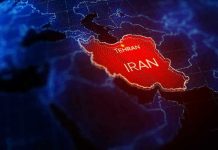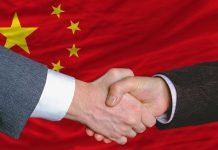
Pavel Durov, Telegram CEO, just exposed France’s disturbing attempt to manipulate Romania’s presidential election by demanding censorship of conservative voices on his platform.
Key Takeaways
- Telegram CEO Pavel Durov claims French intelligence officials pressured him to “silence conservative voices” in Romania’s presidential election, which he “flatly refused”
- The alleged censorship request came amid Romania’s controversial repeat election after initial results were annulled due to claims of Russian interference
- Durov’s allegations come while he faces legal troubles in France, including potential imprisonment of up to ten years on charges related to speech
- Romanian government agencies accused Russia of election interference through social media platforms like Telegram and TikTok
- France’s Foreign Ministry denied Durov’s allegations, calling them “completely unfounded”
French Pressure Campaign Revealed
In a bombshell revelation that exposes the hypocrisy of Western governments’ claims about election interference, Telegram founder Pavel Durov accused France of attempting to manipulate Romania’s presidential election. Durov revealed that French intelligence requested he remove conservative content from his platform ahead of Romania’s recent presidential election. The allegations suggest France was willing to undermine the democratic process in Romania to prevent conservative candidates from gaining influence, particularly as anti-EU sentiment grows in Eastern Europe.
Durov specifically identified the French intelligence chief in his initial statement, saying: “This spring at the Salon des Batailles in the Hôtel de Crillon, Nicolas Lerner, head of French intelligence, asked me to ban conservative voices in Romania ahead of elections. I refused. We didn’t block protesters in Russia, Belarus, or Iran. We won’t start doing it in Europe.” This clear accusation directly implicates high-level French officials in attempted election interference, which represents a shocking abuse of power by a NATO ally against another member state.
Romania’s Contested Election
Romania’s political situation has been particularly tense after authorities annulled the country’s initial presidential election in November 2024, citing alleged Russian interference. The repeat election ultimately saw Nicușor Dan defeat George Simion in the runoff. This backdrop of claimed “foreign interference” makes Durov’s allegations even more explosive, as they suggest the very powers accusing Russia of meddling were themselves attempting to manipulate Romanian electoral outcomes by suppressing speech they didn’t approve of.
“A Western European government approached Telegram asking us to silence conservative voices in Romania ahead of today’s presidential elections. I flatly refused. Telegram will not restrict the freedoms of Romanian users or block their political channels,” stated Pavel Durov, CEO of Telegram.
Romanian governmental agencies, including the foreign, interior, and defense ministries, released a joint statement warning about a “fake news campaign” on platforms like Telegram and TikTok. They specifically mentioned a falsified video claiming French troops in Romania were disguised as Romanian gendarmerie to interfere in the election. The timing of these claims raises questions about whether the Romanian government was coordinating with French authorities in their apparent campaign against conservative voices.
Durov’s Legal Troubles
Durov’s willingness to expose French interference comes despite his precarious legal position. The Telegram founder was arrested in Paris in August 2024 as part of an investigation into various alleged criminal activities on his platform. Though released, he remains restricted from leaving France without special permission. This context makes his defiance even more remarkable, as he risks severe legal consequences by antagonizing French authorities while under their jurisdiction.
“I flatly refused. Telegram will not restrict the freedoms of Romanian users or block their political channels,” said Pavel Durov, CEO of Telegram.
Following Durov’s allegations, France’s DGSE intelligence agency issued a categorical denial of any requests related to electoral processes in Romania. Interestingly, Durov later revised his statement, removing specific references to France and Lerner without explanation. This revision has fueled speculation about potential pressure or threats from French authorities to walk back his claims. Despite this revision, the damage to France’s reputation as a defender of free speech and democracy has already been done.
International Reactions
Elon Musk, a fellow tech entrepreneur who has faced his own battles over free speech, quickly backed Durov’s claims with a supportive “Hear, hear!” Meanwhile, Russian Foreign Ministry spokeswoman Maria Zakharova seized the opportunity to criticize France, commenting that Romania’s election wasn’t truly democratic. The controversy highlights growing tensions between tech platforms committed to free expression and European governments increasingly intent on controlling online speech under various pretexts.
Durov’s courageous stand against government censorship represents a critical moment in the ongoing battle for free speech in the digital age. While mainstream tech companies increasingly bend to government demands to restrict political speech, Telegram’s refusal to participate in election manipulation provides a powerful example of principled resistance. As President Trump continues to advocate for free speech protections, Durov’s actions demonstrate that standing firm against censorship is both necessary and possible, even in the face of significant personal risk.













